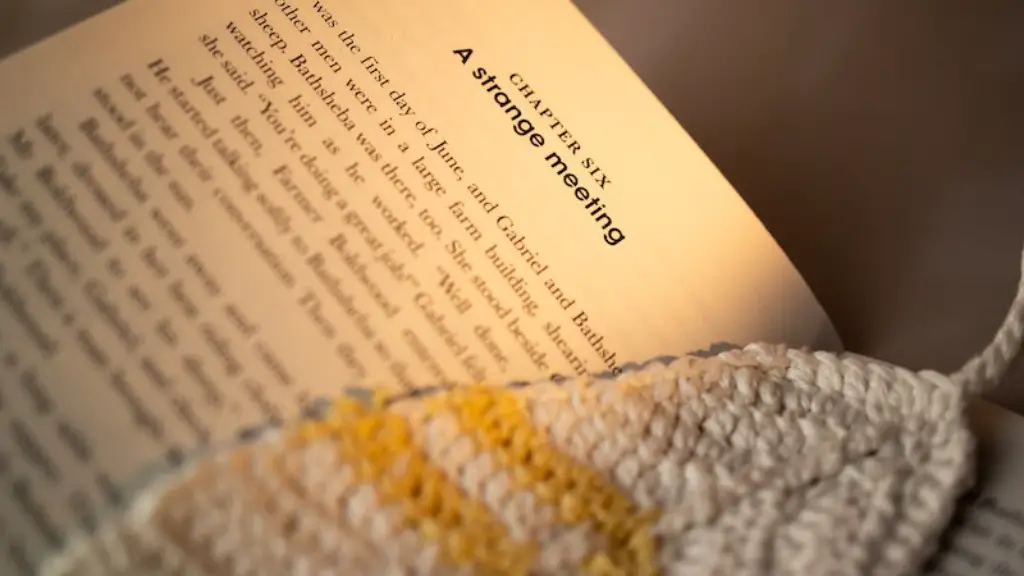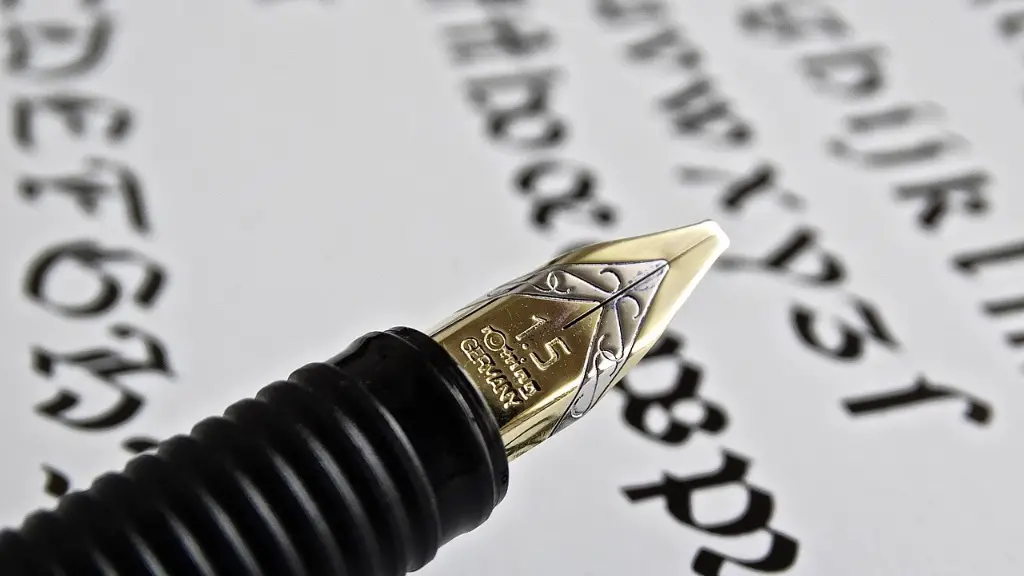Introduction
Poetry is a powerful tool of expression that has been used for centuries to tell stories, articulate opinions and show emotion. Writing short poetry has its own unique skills, artistry and creativity. Short poetry can be quite effective, however, it can also be quite challenging to make it effectively reflect emotion, thought and imagination within its condensed form. This article will discuss some tips and guidelines to help with writing short poetry.
Tips For Writing Short Poetry
Have A Clear Plan
Before starting to write, it is essential to have an idea of the theme or emotion you want to express. Having a clear plan in your mind helps to make the writing process smoother, ensuring that the piece stays consistent and is easy to understand. It also helps to encourage creative ideas, as you can use the plan to brainstorm and come up with different ways to express your thoughts.
Choose Your Words Wisely
Short poetry requires concise writing. You need to choose your words carefully, as each word should carry the full weight of the poem. You will want to avoid unnecessary words or phrases, as this can make the poem seem clunky or lacking in impact.
Consider Language And Rhyme
When writing short poetry, it is important to consider the way you use language and the effect of your words on the readers. It is also important to think about any potential rhyme patterns that could be used. This will help to create a more interesting poem and add to the overall tone and emotion you are trying to create.
Know The Writer’s Voice
It is important to be familiar with the writer’s voice and be able to use it accurately to make sure that the poem creates the desired effect. Knowing the writer’s voice also helps to ensure that the poem’s meaning remains consistent throughout.
Editing Your Work
Once you have written your poem, it is important to take the time to go through it and make sure it is accurate and effective. This might include making sure that there are no typos or errors with grammar, as well as ensuring that everything flows smoothly and is easy to understand. Also consider if there are any areas that can be improved, such as altering wording to ensure that the poem is conveying the right emotion or idea.
Extra Writing Tips
Be Creative
Writing poetry is an artform. It requires creativity, imagination and originality to create something truly unique that speaks to the reader. It is important to be bold, to explore ideas and be willing to experiment with different styles, perspectives and ideas. Don’t be afraid to push the boundaries and find a creative way to express yourself.
Avoid Clichés
Clichés can easily ruin a poem, taking away the power and emotion behind the words. It may be tempting to resort to clichés, especially when you are writing short poetry, but it is important to avoid them and make sure you are writing something original and distinct.
Read Other Poems
Reading other poems and learning from them can be a great way to help refine your own writing and give you inspiration for new ideas. It also helps to broaden your knowledge of poetry and the different styles, techniques, and forms that poets use to communicate their ideas.
Rewrite, Rewrite And Rewrite Again
Once you have completed your poem, the next step is to properly edit it. Take the time to go through and rewrite parts that aren’t working or need improvement. Rewriting is essential to create a good poem, and it is important to think critically and make sure that you are producing the best piece of work that you can.
Engage The Reader
Use Metaphors And Similes
Metaphors and similes can help to engage the reader, as it allows them to create imagery in their mind and to make connections to the words and the emotions conveyed by them. Consider how your metaphors and similes are used, and make sure that they are effective and add to the overall message of the poem.
Be Detailed And Descriptive
Using details and descriptions is essential when writing short poetry as it helps to set the scene and make the piece more vivid. Consider what words you can use to portray the emotion of the poem and to create an imagery in the reader’s mind.
Make It Relatable
Making your poem relatable to the reader can help to draw them in and make them connect with the words. You can do this by using anecdotes, exploring powerful topics, or reflecting on common experiences.
Communicate Emotion
The most important thing when writing poetry is to make sure that the emotion is being communicated effectively. Try to use words that evoke emotion, and consider how the poem will make the reader feel. Focus on the feeling and make sure it is coming through in your words.



